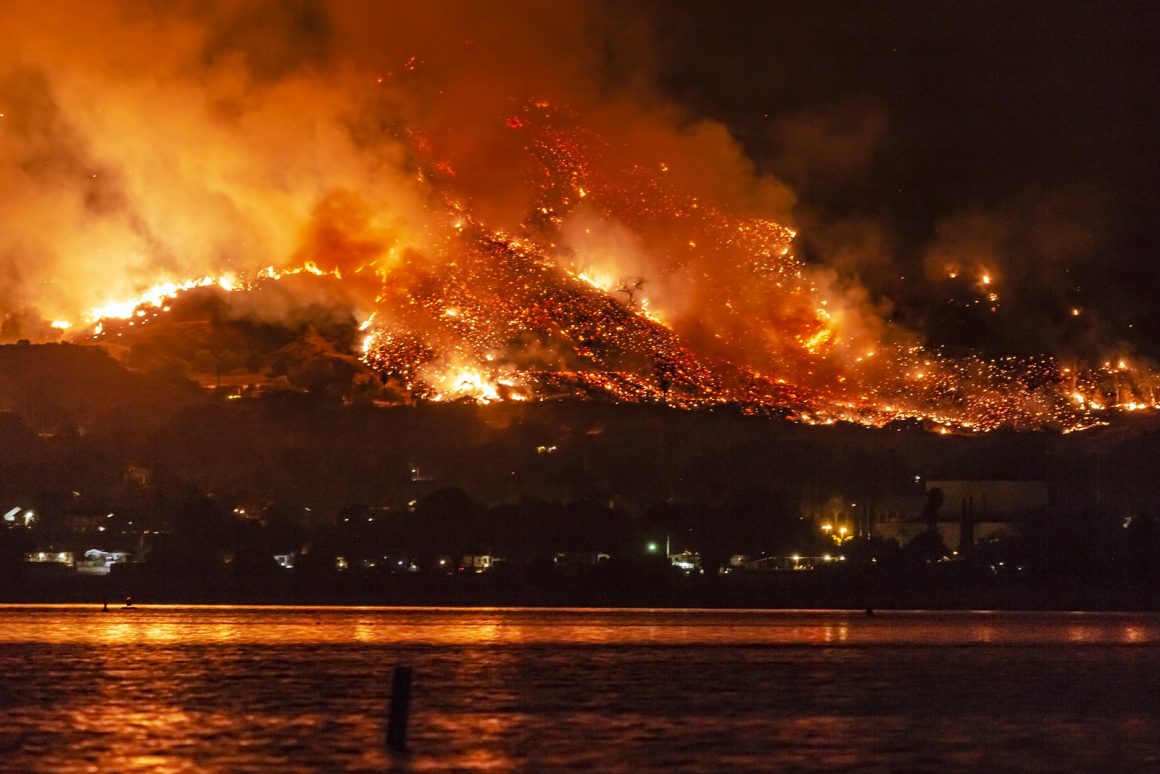We can’t forget the climate problem
By Luis Armando Sanchez Diaz, October 14 2020—
The United States has recently been hit by intense fires across its entire west coast from southern California to the state of Washington. More than 35 people unfortunately have died in the fires and dozens of people were reported missing. About 500,000 were under evacuation orders just in Oregon alone, and as reported by the BBC the affected area was estimated to be around the size of New Jersey according to officials.
The intensity of the fires was captured and posted throughout social media showing apocalyptic scenes of red-orange skies that took over cities like San Francisco because of the intensity of the fires. In the surrounding area, air quality plummeted to levels that endangered the lives of the people living there, especially those with breathing problems. The fires affected several Canadian provinces days after as massive smoke clouds travelled to the BC coast and the Prairies, affecting millions of Canadians.
Unfortunately, the US fires are not the only natural disaster that has happened in the last few years that have shocked the world by the magnitude they’ve had. The world is suffering a severe climate phenomena that is causing lasting damage to the environment, potentially with no return if bold actions aren’t taken before 2030, as urged by scientists, such as cutting in half the emission of greenhouse gasses to the atmosphere.
Hurricane Maria, a category five storm that devastated Puerto Rico and other islands in the Caribbean in 2017, is one of the many examples of the intensity that several cyclones worldwide have had. These cyclones are mainly fueled by warm temperatures that, every year, expand to zones where cold water should predominate, produced by the greenhouse effect thanks to the enormous quantities of polluting gases such as CO2 that are released into the atmosphere.
During the summer, as noted in a Washington Post article, two major ice glaciers fell due to the effects of high-rising ocean temperatures. The Canada Milne ice shelf collapsed into the Arctic Ocean and the Greenland 79 latitude lost a huge portion as well. The former, according to experts, was two times the size of the island of Manhattan and part of the last still-intact ice shelves in the world.
These are just a few examples of the consequences that climate change is producing and that should raise concern among everyone regardless of where they live. We need to see climate change as an urgent threat to all living species. One that is part of the present — a fact proven by scientists from all over the world.
Some people might be very skeptical about the matter but I urge you to research it so you have a better understanding of the things that are happening and how they will worsen. Analyze it and think of future generations and what kind of hostile environment we could live inhabit in not such a distant future if we won’t take real action. One resource that is highly valuable to help get yourself informed is the Global Climate Change website by NASA.
We have to tackle not only the serious threat climate change possesses, but the disinformation campaigns promoted all over social media enhanced by the voice of prominent world leaders like the one currently living in the White House. A man who has publicly called climate change “a hoax” and to have been “created by the Chinese” in order to slow the American manufacturing sector.
Structural change within society is needed and it starts by winning the minds of people though activism either in-person as the Climate Strike taking place in many of the world’s largest cities led by Greta Thunberg, or we can do it by posting real facts of the consequences that global warming has for us in our social media as well as volunteering with organizations that raise awareness on the topic.
We have to continue advocating for our governments to step up the fight against the biggest threat to humans in history by transitioning our economy from being fossil-fuel dependent to a zero-greenhouse-emission one. It won’t be an easy task but it has to be done quickly and carefully so our environment is protected and the economy keeps going, preventing people from losing their jobs.
Remember that climate change is a conversation we need to have, and it has to be scientific, not political. Fighting for this planet, the one we call home, doesn’t have to be divisive or controversial.
This article is part of our Opinions section and does not necessarily reflect the views of the Gauntlet’s editorial board.

